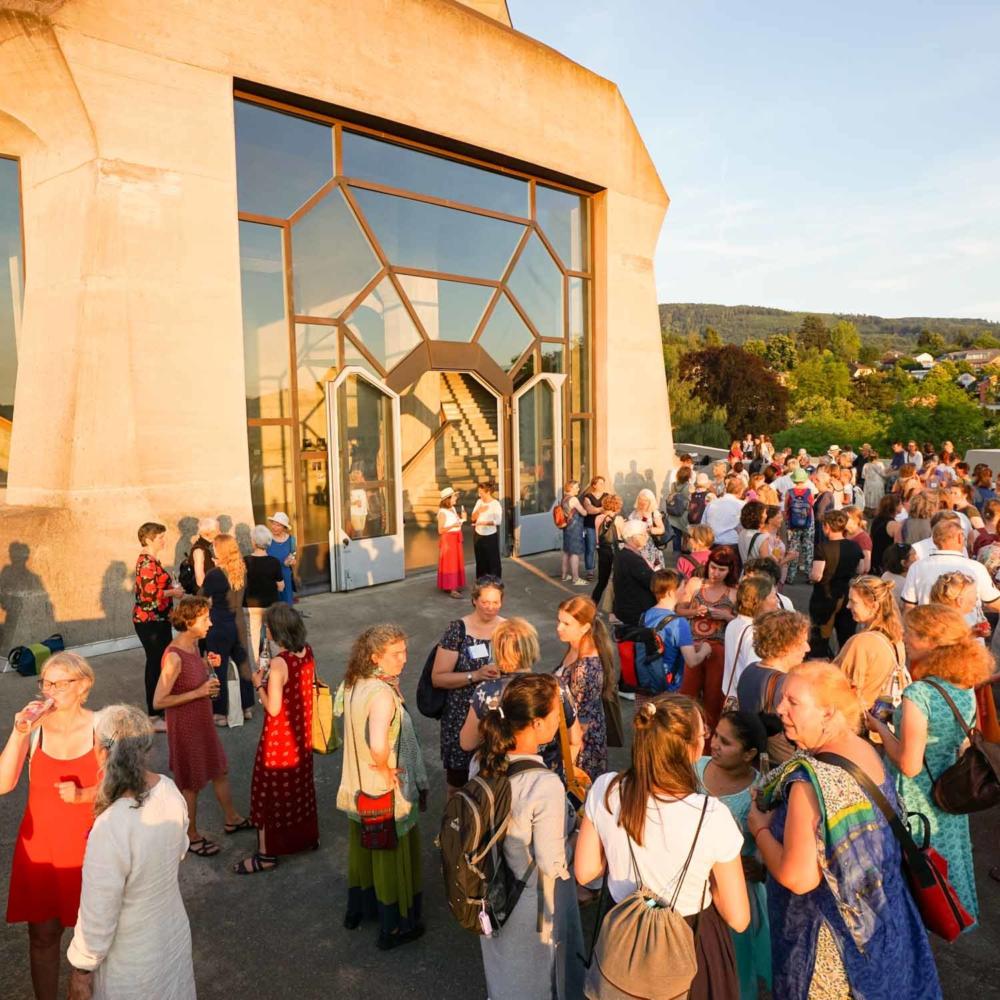Child dignity
The conference on the Dignity of the Child held at the Goetheanum from 15 to 18 June was attended by 400 people from 21 countries.
The dignity of the child is a burning question today, on various levels: spiritual, legal and economic. Spiritually, because digitalization impacts on the development of the senses and of the brain and therefore also on physical maturation in general in a way that remains unpredictable. (There is software for babies as young as three months and tailored to any age after that.)
David Martin, professor of Medical Theory, Integrative und Anthroposophic Medicine at Witten-Herdecke University (DE), presented his Screen-Free Until Three initiative, which has reached two thirds of pediatric practices in Germany and has the potential to grow internationally.
Broad collaboration
Legally, there is growing global awareness of the principle that “the child’s rights are human rights”. Claudia Grah-Wittich, a pioneer of early years education and early intervention (Am Hof, Frankfurt, DE) used roll up banners and flyers to call attention to the UN Convention on the Rights of the Child. During the pandemic, these rights were often violated around the world.
But independently of the pandemic, children are losing their spaces for playing today. Parents and early years educators have to fight for spaces that allow for a dignified education; physicians and therapists speak of the increase in mental and chronic physical illnesses in children. Economically, many families, single parents and their children the world over suffer from material constraints and immense mental stress. In many countries these problems have been significantly worsened by the pandemic.
This background and the fact that experts from 21 countries met to work together on questions regarding the child and child dignity, gave the conference particular momentum and lent it a special mood. It was wonderful to experience the collaboration of representatives of different professions, all devoted to caring for children and parents during pregnancy, birth and in the first three years of life. It became apparent how children continue to live in a close connection with their parents and caregivers even after birth, in body and soul, and as spiritual individualities who only gradually enter into their own body.
An environment that is suitable for children
Philipp Reubke and Georg Soldner, from the Leadership teams of the Education Section and the Medical Section respectively, pointed out at the very beginning that one cannot separate therapeutic, educational and social support in that phase of life. Even after birth, children need an environment that provides warmth, wellbeing and safety and that is open to the child’s intentions.
“Give me time until I can do it myself!” – this is how the pioneer Emmi Pikler described the child’s gesture. This individual movement, children’s joy in discovery and little adventures in nature, the fostering of their autonomy are as important as loving, sensitive relationships and the meeting of their needs.
Plenary lectures presented by gynecologists and pediatricians including Michaela Glöckler, Angelika Maaser, Karin Michael and Jan Vagedes and by early years educators and early intervention specialists such as Claudia Grah-Wittich, Ina von Mackensen, Cristina Meinecke and Katherine Scharff alternated with twenty internationally constituted working groups.
The conversation between Karin Michael and Georg Soldner on the topic of vaccination and on the freedom of parents to decide when and against what they want their children to be vaccinated illumined how diverse the aspects are that need to be considered in the individual case and how differently they appear in the different countries around the world. The topic of fear and overcoming fear was at the centre of a panel discussion moderated by Stefan Schmidt-Trotschke from the German patients’ association “gesundheit aktiv” (active health).
The joy of being able to meet again directly, person to person, and to draw new strength and new impulses from this encounter was tangible on the warm summer evenings on the Goetheanum Terrace. The Goetheanum Eurythmy Ensemble’s performance of classical and contemporary music and poetry was a special experience.
Public commitment
The conference theme had been prepared by the interdisciplinary Pregnancy, Birth and Early Childhood work group, which operates within both the Medical Section and the Education Section and which has published numerous contributions on the topic in English, German and Spanish (Anthromedics). Their work will continue with the impulse to represent the Goetheanum in their objective, public and international active commitment to the dignity of the child.

